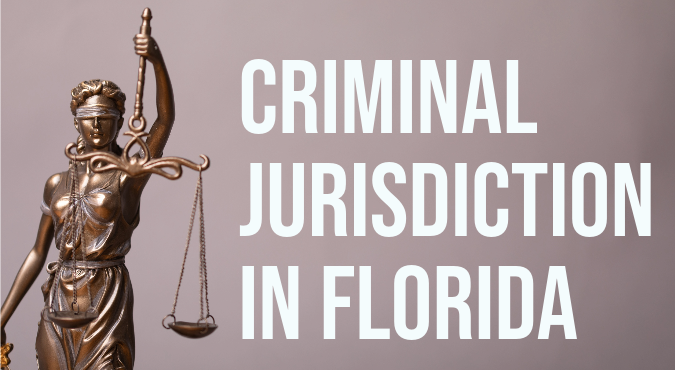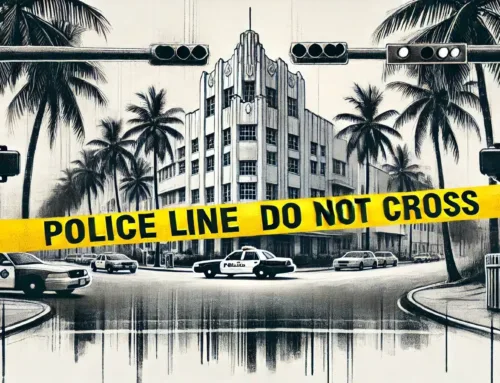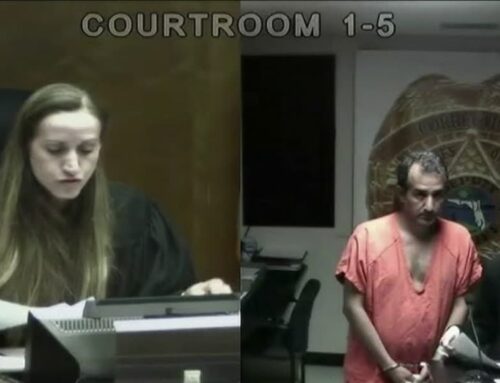Jurisdiction Matters: Understanding Criminal Jurisdiction Issues in Florida
Territorial Jurisdiction – The Power of Place
General Rule
Generally, a Florida circuit or county court can only preside over crimes committed within that territorial jurisdiction. For example, if my client is alleged to have committed shoplifting in Miami-Dade County, the case can only be tried in a Miami-Dade County court. A court located in another Florida county or judicial district would lack territorial jurisdiction.
Proving Territorial Jurisdiction
Territorial jurisdiction must be proven beyond a reasonable doubt and is a factual issue for the jury to decide if the location of the alleged crime is disputed. Under Florida law, a crime occurs within the state’s territory if any element of the offense, or any result of the offense, takes place here. For homicide cases, if the victim’s body is found in Florida, their death is presumed to have occurred here.
High Seas Crimes
A specialized aspect of territorial jurisdiction involves crimes occurring on the high seas adjacent to Florida. While not technically within state boundaries, crimes committed within three nautical miles of Florida’s Gulf Coast and 3 miles of the Atlantic Coast may be prosecuted in Florida courts.
The Florida Legislature has also extended jurisdiction for certain offenses aboard cruise ships departing from or arriving at Florida ports, regardless of location. For example, violent crimes against Florida residents onboard qualify, even if committed many miles offshore. However, defendants can raise legal defenses unique to high seas jurisdiction.
Subject Matter Jurisdiction – The Power of Offense
In Florida’s two-tier court system, felonies must be tried in circuit court while misdemeanors and municipal ordinance violations fall under county court jurisdiction.
If my client is charged with felony burglary, for instance, only the circuit court has subject matter jurisdiction to hear the case. The county court could not preside over those charges. However, the circuit court does have subject matter jurisdiction over misdemeanors that are lesser included offenses of a charged felony. For example, misdemeanor petty theft is a lesser included offense of felony grand theft.
Since subject matter jurisdiction involves a court’s basic power, it can never be waived by a defendant failing to raise the issue. A conviction entered by a court lacking subject matter jurisdiction is void and can be vacated at any time.
Personal Jurisdiction – The Power of Process
Assuming territorial and subject matter jurisdiction exists, a Florida criminal court only acquires the power to adjudicate my individual client’s case once personal jurisdiction is established. This occurs through proper service of process including an arrest warrant, summons, or initial appearance before the court.
Defects in personal jurisdiction, like an invalid arrest warrant or lack of probable cause, must be objected to before a plea is entered or the issue is waived on appeal. But faulty personal jurisdiction does not void the entire proceeding like subject matter jurisdiction defects do.
Even an illegal arrest does not deprive a Florida court of personal jurisdiction over my client. The critical issue is whether he or she was brought before the court through some lawful process, not necessarily a lawful arrest. Once my client personally appears in court, any technical defects in the charging document or arrest procedure are generally considered waived.
Venue vs. Jurisdiction
Finally, jurisdiction over a criminal case should not be confused with venue. Jurisdiction concerns the court’s fundamental power while venue relates to the proper location for trial within a jurisdiction.
For instance, while an armed robbery occurring in Daytona Beach establishes territorial jurisdiction in Volusia County, the venue may need to be changed from Daytona to Deland courthouse for jury pool or pretrial publicity reasons. However, the case remains within the overall jurisdiction of the Seventh Judicial Circuit, encompassing Volusia County.
Contact an Experienced Defense Lawyer
As Florida criminal defense attorneys know, untangling the complex strands of jurisdiction provides an opportunity to zealously defend our client’s rights from the very outset of a case. Thoroughly analyzing territorial, subject matter, and personal jurisdiction issues offers a chance to dismiss weak charges or strengthen our bargaining position during plea negotiations.
Understanding this crucial but intricate area of criminal procedure is an indispensable part of being an effective advocate. Never hesitate to contact my office for a jurisdictional case evaluation.
CALL US NOW for a CONFIDENTIAL INITIAL CONSULTATION at (305) 538-4545, or take a moment to fill out our confidential and secure intake form.* The additional details you provide will greatly assist us in responding to your inquiry.
THERE ARE THOUSANDS OF LAW FIRMS AND ATTORNEYS IN SOUTH FLORIDA. ALWAYS INVESTIGATE A LAWYER’S QUALIFICATIONS AND EXPERIENCE BEFORE MAKING A DECISION ON HIRING A CRIMINAL DEFENSE ATTORNEY ATTORNEY FOR YOUR MIAMI-DADE COUNTY CASE







